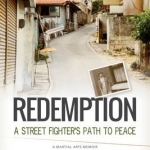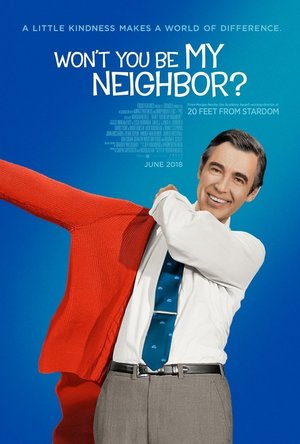Kristy H (1252 KP) rated Forget You Know Me in Books
Apr 4, 2019
So I found the plot on this one kind of baffling at first: I think it could have done without Liza and Molly's fight, honestly. Their fighting was awkward and uncomfortable and didn't seem really necessary. But I quickly warmed to Molly and Liza, who were very real characters with flaws and genuine traits. For Liza, much of her life is ruled by her anxiety, while Molly's by her chronic pain. I felt for both of them. Despite being best friends, they are on separate tracks for most of the book, making you wonder where things are going to wind up.
With everyone keeping secrets, telling lies, and basically just being dishonest--both to others and themselves--the book really does keep you guessing about what happened that night. As it does, you're treated to a very realistic look at marriage and friendship. I felt parts of it were overblown and it was a very different sort of read, but I enjoyed it overall. The descriptions and portrayals of Molly and Liza are what really drew me in. 3.5+ stars.
Mark @ Carstairs Considers (2478 KP) rated The Promise in Books
Jun 18, 2019
Knowing Scott and Maggie were going to be featured very heavily in this book was what got me reading the Cole and Pike books several years ago, so it was nice to finally get to read this one. I’m happy to say it lived up to the promise of the premise. The book is another great thriller with plenty of things happening to keep us interested. Both sets of characters contribute something to the eventual outcome. I did think there was a plot hole early on in the book, but it was resolved by the time we reach the climax. The characters were a little thin again, although I enjoyed getting to see a bit of a different side to John Stone here. The violence, language, and general depravity is definitely toned down from the previous book, although there is still more than in my typical cozies, which is no surprise. Fans of author Robert Crais or either set of characters will be pleased by this book.
Gareth von Kallenbach (980 KP) rated Don't Breathe (2016) in Movies
Jul 15, 2019
circumstances. The opportunity appears in the form of a blind, reclusive war veteran living in an abandoned neighborhood. They quickly realize that they have underestimated this man.
Don’t Breathe is filled with tension and has audiences confused as to whether they want the trio to survive the night as they go from being the aggressors to the prey of this man as he defends himself and his home from these invaders.
The film turns the horror/suspense genre around and allows for the audience to feel the tension without being too predictable. You feel as limited as the thieves as they try to escape from the house that they have entered. You feel as though, at any moment, they will be caught, injured, or even killed in this deadly game that the blind man has started with them.
The strength of the film is not in gore or shocking moments, it is in the reality of the fear and anxiety that builds throughout Don’t Breathe. The film allows for depth of the storyline and ability for audiences to find themselves conflicted as to whether or not they should cheer for anyone in the film.
8No one is innocent. Don’t Breathe is multidimensional and does not insult the intelligence of its audience with contrived plots and clichés. The film allows us to realize that monsters exist everywhere, even in the most unassuming places and people.
Russ Troutt (291 KP) rated Won't You Be My Neighbor? (2018) in Movies
Jul 2, 2019
For in the worst of times you always made me see the good.
You would walk in with a smile on your face,
I knew that I was welcome at your place.
And no matter the weather,
You would put on your sweater.
Then you would sit down to put on more comfortable shoes,
Making me comfortable knowing I had a neighbor like you.
Together we would feed the fish,
Sometimes go to the kitchen and make a dish.
It was always my brain and heart that you were feeding,
As a kid you knew exactly what I was needing.
Messages would come from Mr. McFeely,
Who would show up with a speedy delivery.
When I'd hear the bell of the trolley,
I'd get excited and feel jolly.
For I knew we were off to visit our puppetry friends,
On the other side of the tunnel in make believe land.
You taught me what to do with my mad,
And that it was okay to be sad.
You helped in dealing with the bad and serious issues of the world,
But at the end of everyday in me the good you had restored.
In our daily meetings on television with me there is so much that you left,
I am special, amazing the way I am, and in the scary to be the one that helps.
It was in your words that I did find,
The key to success is being kind.
In many ways you were a savior whose love will always be savored,
Mister Rogers I will be forever grateful that you were my neighbor.

DinoMess: Dinosaur Games in Augmented Reality
Games, Entertainment and Stickers
App
DinoMess is dinosaur adventure games with AR (augmented reality) features, where you hunt for dino...

Redemption: A Street Fighter's Path to Peace
Book
Michael Clarke was an angry,vicious kid, a street fighter. He grew up in the late sixties and...

The Art of Tough: Fearlessly Facing Politics and Life
Book
After serving in Congress for more than thirty years as both a congresswoman and a senator, Senator...

Civitas by Design: Building Better Communities, from the Garden City to the New Urbanism
Book
Since the end of the nineteenth century, city planners have aspired not only to improve the physical...

Deep Space: Beyond the Solar System to the End of the Universe and the Beginning of Time
Book
Govert Schilling explores the mysteries of space that lie beyond our solar system on this...
The Likeness (Dublin Murder Squad, #2)
Book
The haunting follow up to the Edgar Award-winning debut In the Woods Tana French astonished...




